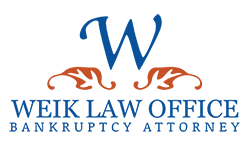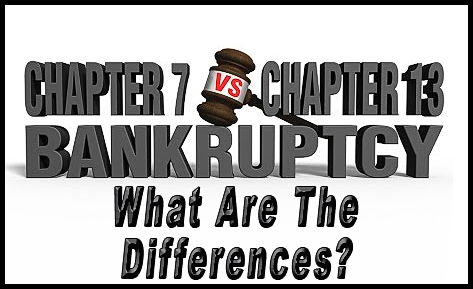GET HELP TODAY
Know the Difference Between Chapter 7 and Chapter 13 Bankruptcy in Raleigh
The COVID-19 pandemic, one of the greatest health crises of our time, has resulted in serious financial issues across the globe. Many people have lost their jobs, businesses, and racked up massive medical expenses— and for some, all at the same time. If you’re currently facing a mountain of debt, hiring a bankruptcy lawyer in Raleigh, NC can help you get back on your feet.
Note that filing for bankruptcy isn’t just a good option during a worldwide crisis like COVID 19. It’s a tool that’s designed to give individuals a fresh start through debt relief. You can file bankruptcy for several types of debt, such as credit card debt and medical debt.
Over the years, Weik Law has helped countless individuals like you regain financial freedom. One of the first steps is understanding the difference between two major types of bankruptcy: Chapter 7 and Chapter 13.
Chapter 7 vs. Chapter 13 Bankruptcy
Your journey to a successful application begins by selecting the right type of bankruptcy to file for. Most filings fall under two categories: Chapter 7 and Chapter 13. Below are some of their fundamental differences:
Eligibility
Chapter 7 bankruptcy applies to individuals and business entities, while Chapter 13 bankruptcy is open only to individuals, including sole proprietors.
Restrictions
To qualify for Chapter 7, you must pass the means test. You need to compare your income to the median income in North Carolina, and the specific figure depends on the size of the household. For a one-person household, for instance, the median income is $37, 892. If your income falls under that amount, then you qualify for Chapter 7 bankruptcy.
On the other hand, individuals looking to file for Chapter 13 bankruptcy in Raleigh need to qualify for a certain amount of secured and unsecured debt. Weik Law bankruptcy attorneys will help you figure out these numbers based on North Carolina’s specific bankruptcy laws.
Property Management
Under Chapter 7 bankruptcy, bankruptcy trustees can sell the debtor’s property to pay their creditors. While some personal property is exempt, there are limits to the value of exemptions.
Chapter 13 bankruptcy, on the other hand, gives petitioners a chance to keep their property upon completion of a court-mandated repayment plan. This typically involves paying unsecured creditors with a sum that is equal to the value of their nonexempt assets.
At Weik Law, we understand that no one wants to lose property. Trust our knowledgeable bankruptcy lawyer in Raleigh, NC to help you navigate North Carolina property exemptions so you can keep as many of your assets as legally possible.
Advantages
Chapter 7 bankruptcy allows debtors to get a fresh start by discharging most of their debts. It’s essentially a clean slate, because approved petitioners won’t need to pay creditors anymore.
Meanwhile, Chapter 13 bankruptcy doesn’t wipe out debt like Chapter 7. Instead, it grants relief in the form of a three- to five-year repayment plan designed to be much more affordable for the debtor. In turn, Chapter 13 allows the debtor to keep the property instead of taking it. Once the repayment period is over, most remaining debt is discharged as well.
Weik Law: Your Ally Through Bankruptcy
Filing for bankruptcy can be difficult for anybody, but you don’t have to go through it alone. Weik Bankruptcy Attorneys specialize in simplifying the entire bankruptcy process for our clients. Expect to be treated with the respect and dignity that you deserve, as our bankruptcy attorneys go the extra mile to help you get the best possible outcome for your application.
Contact Weik Law Office today at 919-845-7877 to schedule a FREE consultation with one of our trusted and friendly bankruptcy attorneys.

